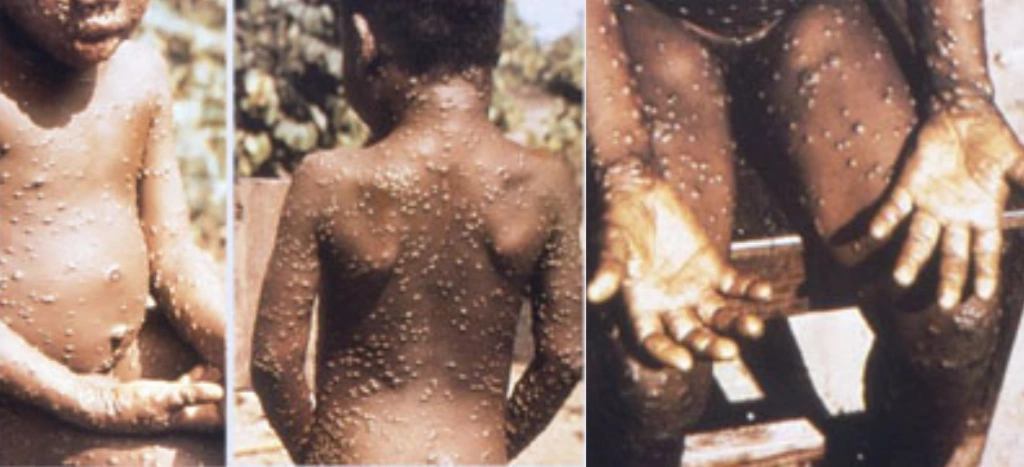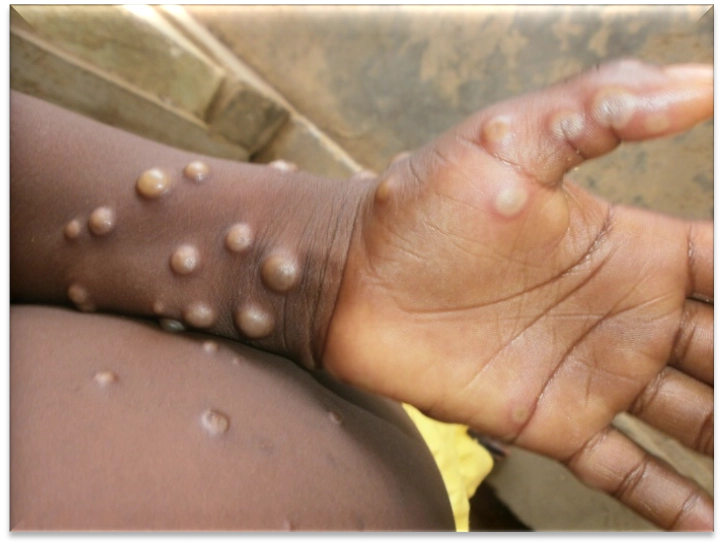Recently, there has been a lot of talk about outbreaks of so-called monkeypox, or mpox. Reports have surfaced about a nationwide outbreak in the Democratic Republic of Congo (DRC) and the spread of the disease in other African countries and beyond. Here’s everything we know about mpox so far.
Jump to the update from March 10, 2025
Mpox outbreak - global health emergency.
The World Health Organization (WHO) declared the spread of mpox a global public health emergency and a danger to the world in mid-August 2024. This is the second such response from the organization regarding the spread of the disease, with the previous emergency being declared in July 2022.
In both cases, the reason for these declarations was the identification of new outbreaks with a large number of cases across multiple countries.
Why does the WHO make such announcements? These declarations aim to mobilize the governments of affected countries and international organizations, as well as to alert others who are at potentially high risk. International concern is often key to addressing dangerous outbreaks.
What is monkeypox?
Mpox is an infectious disease that affects both humans and other animals. It is characterized by fever, painful skin rashes, swollen lymph nodes, and other symptoms.
The disease is caused by a virus transmitted from person to person and, less frequently, from animals to humans. The outdated name "monkeypox" refers to the first recorded transmission of the virus to a human, which occurred from a monkey in 1970 in the Democratic Republic of Congo.
What are the symptoms and mortality rate of mpox?
This disease initially causes fever, headaches, muscle pain, and weakness, followed by skin rashes all over the body. The fever phase lasts 1–3 days, and the rash can persist for 2–4 weeks. The rash is specific, resembling blisters or ulcers, and can appear not only on the skin but also in the mouth, throat, and even the rectum.
In most cases, symptoms subside on their own within a few weeks. However, fatalities do occur, with reports indicating a death rate ranging from 0.1% to 10%. The risk is higher for young children and individuals with advanced, untreated HIV.
Has mpox been reported in Tanzania?
No, Tanzania has not reported any cases of mpox. This has been confirmed by the Tanzanian Ministry of Health, which is closely monitoring the situation in other countries and taking measures at the borders to prevent the virus from entering the country.
Which countries have reported mpox?
The Democratic Republic of Congo (DRC) is the most affected, with several outbreaks due to the country's traditionally low level of healthcare. The disease mainly affects children under 15 and adults who engage in unprotected sexual activity. The issue has been ongoing in the DRC for over 10 years.
In April 2024, outbreaks were detected in the neighboring Republic of Congo and the Central African Republic. In July 2024, cases were reported in Burundi, Rwanda, and Uganda.
These outbreaks were caused by a new strain that emerged in 2023, raising concern among the WHO.
In previous years, outbreaks have also occurred in countries like the United States, Nigeria, and Sudan.
Currently, isolated cases are being reported in other countries far from Africa, including Sweden. These are known as "imported cases," where travelers become infected in endemic regions.
How is mpox transmitted and how can it be prevented?
Mpox is primarily transmitted through close contact with an infected person, including activities like touching, sexual contact, or kissing. While transmission via respiratory droplets is possible, it generally requires prolonged face-to-face interaction, making it less common than skin-to-skin contact.
Virus particles can also survive on surfaces touched by an infected person. Open wounds, cuts, and mucous membranes are particularly vulnerable.
To avoid transmission, it’s essential to avoid contact with infected individuals, keep a distance of more than two meters, and frequently wash hands. If close interaction with an infected person is necessary, masks and social distancing should be observed.
Is there a vaccine for mpox?
Yes, a vaccine for mpox exists. The smallpox vaccine, which helped eradicate smallpox in 1978, is used for mpox. Vaccination is recommended for those who work with infected individuals or have had close or intimate contact with someone who is infected.
Can mpox be treated?
Yes, mpox is treatable, and treatment is based on the same principles as smallpox treatment. The main treatment is an antiviral drug called tecovirimat, approved by the European Union.
This material will be updated as new information becomes available. Altezza Travel is closely following the news and official statements from relevant organizations.
Update from March 10, 2025
On March 10, 2025, the Ministry of Health of Tanzania reported confirmed cases of Mpox in the country. On March 7, two individuals, including a long-haul truck driver who entered Tanzania from a neighboring country, were found to have suspicious symptoms. Both exhibited the following signs of illness:
- Rash on the face, hands, and feet
- Fever
- Sore throat and headaches
- Muscle and back pain
Tests confirmed that both individuals have the infectious disease. As a result, Tanzania has officially recorded two cases of Mpox so far.
The authorities continue to monitor the situation to promptly detect any new cases of monkeypox. The Ministry assures that the country is fully prepared to combat the infection, and border health controls have been strengthened.
Additionally, the Ministry reported that the Marburg virus situation, which was announced on January 20, is under control — no new cases have been detected for 41 days.
All content on Altezza Travel is created with expert insights and thorough research, in line with our Editorial Policy.
Want to know more about Tanzania adventures?
Get in touch with our team! We've explored all the top destinations across Tanzania. Our Kilimanjaro-based adventure consultants are ready to share tips and help you plan your unforgettable journey.



















